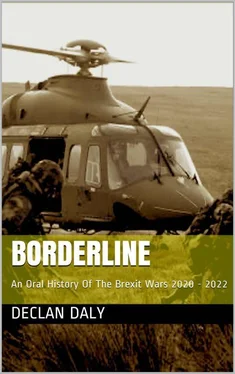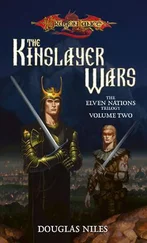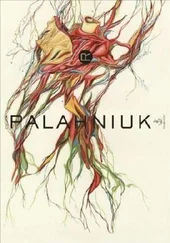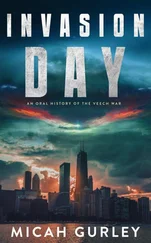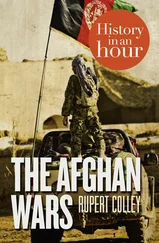So, my job, or rather my sections job? At first it was just to secure a landing site for helicopters to come in and evacuate people. One heli had been held off just for that although it turned out that most of them were taking people off after the first wave. I was already down one person in my section, because Dave Lennon, he was my 2i/c, he landed and basically went up to his knees and rotated forward which broke both his legs. So, he was in a bad way and he was the first one that we actually evacuated from our dropzone. I think in total there were something like twenty-three guys injured badly enough to be taken off the hill, just from the drops alone, but apparently those figures are about right for what is expected on a parachute drop of that size.
Anyway, our job as a force at that point, was to essentially take control of the top of the mountains, deny the use of them to the IRA and in platoon size units start eliminating any forces that we came across in that area, and start driving down into the forestry. Obviously, platoon size movements split us up a little bit, but it was the biggest size of a unit that you could actually make work in the terrain we were fighting through. In some ways, this prevented us from using our conventional strength against the IRA but it was pretty much the right size for most of the groups that we did come across. There were only one or two areas where people came across bigger concentrations and those were dealt with by artillery and airstrikes. In fact, this was really the first major integrated use of close air support in Ireland as well. This came from Air Corps PC 9 training aircraft firing unguided rockets and 50 caliber machine guns. I'd have to say these were partially successful. I saw one or two strikes go in, but I didn't get call for one myself. From what the guys were telling me, the people who called them in, they were successful if they hit hard ground. If they were firing at the forests or onto a trackway that was fine, but in the bogs the weapons would just bury themselves into the ground. In some cases, they actually started forest fires, which were not unproductive for us, I suppose. It definitely, well, you can't defend any position in a wooded area when it's on fire all around you, so it pushed the IRA onto the move, where they were easier to pick off. It wasn't a deliberate policy; you’ve heard some accusing us of ‘ecological terrorism’. But I suppose that's Twitter for you.
It was a bit frustrating for us I suppose. The second wave came in. But those of us holding landing sites, our job was to stay there and start organising and getting the incoming troops, you know, set up and oriented and on their way to fight. But I suppose the thing was at that point, we were saying we wanted to do that too, I suppose the reason being, after all winter, it seemed like we were playing to our strengths now as opposed to theirs, and everyone wanted a piece of that.
The first day of the operation…So probably the biggest success, um, they say we accounted for half the IRA out there just on that first day, just by taking them by surprise. They were obviously expecting a ground intervention, but they had nowhere to go when we landed on top as well. The airborne troops effectively pushed a lot of them down into it waiting hands of 2 Cav, who were more than happy to pick them off. Most were captured alive and uninjured on that day, just purely true the shock and surprise factor from the way that we deployed. It was in the next few days done things inevitably ground down a little bit. From then on, we got to do our bit of patrolling after all, and yeah, we started to encounter guys digging trench systems, underground caches with spider holes for defence that hadn't been policed up on the first day. Over on the western end towards Kinnity, unfortunately, two of our guys from my Company were killed by snipers. That was taken care of pretty quickly with PC -9s. In that case the platoon was able to move in and recover bodies and weapons, proving that the airstrike had been successful.
And that was it for the next five days really, it was the old school section attack of style tactics just like in the Glen of Imaal. If you've ever tried to fight in those kinds of areas, like, the whole area, it's wood once you push down through the tree line. It's just blanketed with this thick carpet of pine needles, roots, it’s dark in the middle of the day in there. Plenty of shade and shadow and contrast, all the things you need to hide and camouflage yourself, so yeah, in a lot of cases it was watch out for IEDs, watch out for trip wires, rifle barrels, anything regularly shaped that would give away a position And then assault that position with machine guns and grenades. Yeah, pretty old school. I mean a lot of what I learned coming up, it was based on the idea of having supporting arms and supporting weapon systems, but this sounds a whole lot more like when my mother told me what her recruit training was like. You weren’t expecting to have anything to back you up, you just got on with it and that's what we did.
They reckon over the course of that five days, six days really when you include the drop, that we captured or killed as many as two hundred and twenty IRA members, with the rest either still bogging down in small positions in the Sliabh Blooms or escaping. That was to be expected. I mean, it's a mountain range: you're never going to seal off every single possible aspect and if people break up into smaller groups, then yeah, they're going to be able to get out. Critically though, they're not going to carry their heavy weapons, they're not going to carry their explosives and just hop on the bus in Portlaoise and head back North. That was seen as a really major success, but it did cost us eleven dead in the end, and about fifty seven injured in direct combat, so that’s not including the parachute injuries. It was a heavy cost and, you know- people died in ones and twos during the Black Winter, but this – this I think was our first real exposure, and the public's first real exposure, to what it means to be at war in your own country. That there was a cost. Now, when the cost is nearly one hundred people who aren't going to be able to soldier anymore, or not for a long while anyway, that also was having a massive impact on the Defence Forces itself in terms of pure numbers. I was lucky. Dave Lennon was the only guy that I lost from my section injured. But one of the other platoons, Jesus. Of the eleven dead, three came from just one section with four more injured. Nearly a whole section wiped out. One guy triggered an IED which took out two of them. The rest were engaged by machine gunfire and the IRA guys that did it, they just bugged out. No one knows if those guys were subsequently caught in another engagement or if they actually escaped. It's frustrating.
But once the operation was done, you know, we spent another few weeks there before everything kicked off again in the Cooleys. And, of course, we had some of the new reserve guys come in. That's the second line guys, not the exers most of whom were retraining over the winter and getting back up to speed. These were the ‘new FCA’, a few guys from who'd been patrolling on the border for about a month at that stage, so still pretty fresh. They were actually a lot better than I would’ve thought. There was a resentment, at first, all that taking them out and holding their hands, but I think we all realised as well, that we had to build them up quickly and effectively if we were ever going to get any respite ourselves. And if we were going to put the bullet in the whole border campaign altogether. So, yeah, after the main operation was done, we spend just more weeks patrolling, patrolling, patrolling. Teaching, mentoring these new guys and then patrolling some more. God, what I would have given for cup of proper coffee in the middle of all that.’
Читать дальше
